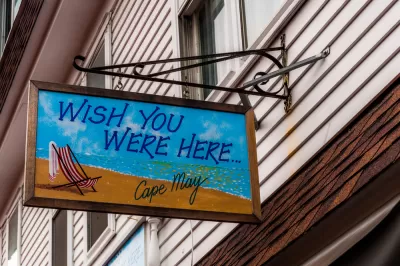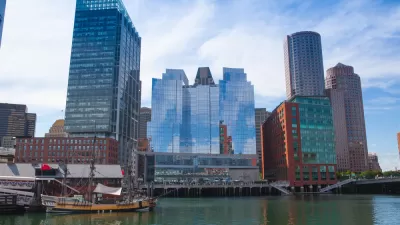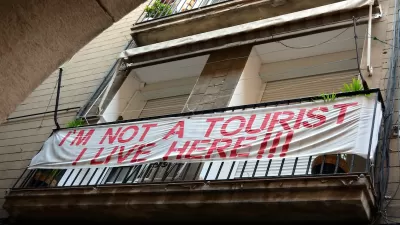A new tax on short-term rentals went into effect in New Jersey in October, so it hasn't had a chance to impact the summer tourism on the Jersey Shore yet.

"The Jersey Shore, a storied summer vacation spot, has become the newest national battleground over regulating and taxing the internet economy," according to an article by Nick Corasaniti.
"New Jersey is one of the first big states to adopt a surcharge on short-term rentals — a so-called Airbnb tax. It kicked in Oct. 1 and is causing vacationers to rethink their summer travels and stirring anxiety among the homeowners who rely on them," reports Corasaniti.
Corasaniti places the controversy in New Jersey in context of other states who have adopted similar taxes on short-term rentals, like Massachusetts and Colorado, as well as the other signifiers of the "sharing" or "gig" economy enabled by contemporary mobile internet technology, like Uber. States are, according to Corasaniti, "struggling to ensure that newer e-commerce companies abide by the same rules that apply to more established businesses."
Meanwhile, back in New Jersey, some homeowners are saying that tourist season is likely to be slower this year because of the tax. "Homeowners complain they are having a hard time filling properties when they should be well on their way to being fully booked for summer. And businesses that rely on free-spending summer visitors fear that the rental tax threatens their most important time of year."
FULL STORY: ‘Airbnb Tax’ in N.J. Opens New Front in Battle Over Internet Economy

Study: Maui’s Plan to Convert Vacation Rentals to Long-Term Housing Could Cause Nearly $1 Billion Economic Loss
The plan would reduce visitor accommodation by 25,% resulting in 1,900 jobs lost.

North Texas Transit Leaders Tout Benefits of TOD for Growing Region
At a summit focused on transit-oriented development, policymakers discussed how North Texas’ expanded light rail system can serve as a tool for economic growth.

Why Should We Subsidize Public Transportation?
Many public transit agencies face financial stress due to rising costs, declining fare revenue, and declining subsidies. Transit advocates must provide a strong business case for increasing public transit funding.

How to Make US Trains Faster
Changes to boarding platforms and a switch to electric trains could improve U.S. passenger rail service without the added cost of high-speed rail.

Columbia’s Revitalized ‘Loop’ Is a Hub for Local Entrepreneurs
A focus on small businesses is helping a commercial corridor in Columbia, Missouri thrive.

Invasive Insect Threatens Minnesota’s Ash Forests
The Emerald Ash Borer is a rapidly spreading invasive pest threatening Minnesota’s ash trees, and homeowners are encouraged to plant diverse replacement species, avoid moving ash firewood, and monitor for signs of infestation.
Urban Design for Planners 1: Software Tools
This six-course series explores essential urban design concepts using open source software and equips planners with the tools they need to participate fully in the urban design process.
Planning for Universal Design
Learn the tools for implementing Universal Design in planning regulations.
City of Santa Clarita
Ascent Environmental
Institute for Housing and Urban Development Studies (IHS)
City of Grandview
Harvard GSD Executive Education
Toledo-Lucas County Plan Commissions
Salt Lake City
NYU Wagner Graduate School of Public Service




























